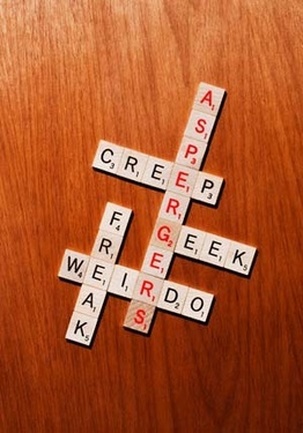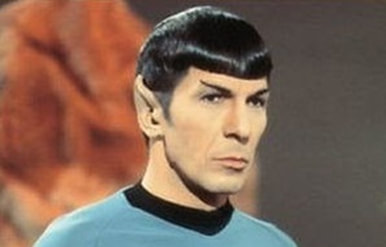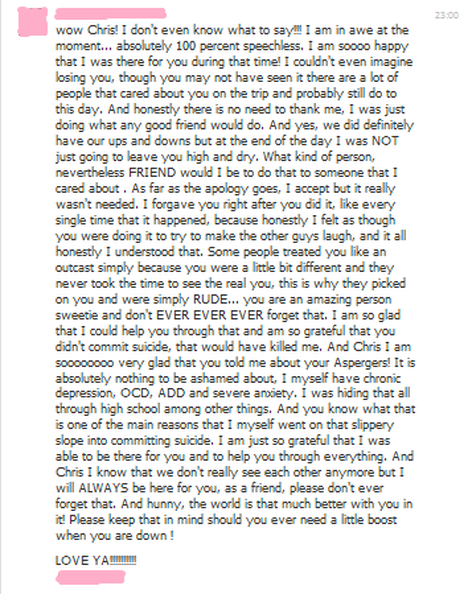My Autistic Life
"I don't understand the children around me. They don't want to talk about things that are interesting. I used to think that they were silly, but now I am beginning to understand that I am the one who is all wrong. I try so hard to do what I am told, but just when I think I am being most helpful and good, the teachers tell me off and I don't know why. It's as if everybody is playing some complicated game and I am the only one who hasn't been told the rules. But no-one will admit that it's a game or that there are rules, let alone explain them to me. Maybe it's all a joke being played on me; I know about 'jokes'. I would be happy if they left me alone to think my thoughts, but they won't. I think that I may be an alien who has been put on this planet by mistake; I hope that this is so, because this means that there might be other people out there in the universe like me."
- Clare Sainsbury, Martian in the Playground
- Clare Sainsbury, Martian in the Playground
I used to have Asperger's syndrome, but that's no longer really a thing, so now I just have autism. I resented that at first, but eventually realized my resentment was purely emotional and had no rational basis, and that I needed to let it go or I would be a hypocrite for rolling my eyes at people who still protest Pluto's demotion from planet status. And then I learned that Hans Asperger actively colluded with the Nazi eugenics program and sent children to their deaths. I usually refer to myself as being autistic but since "autist" isn't really a word, I still call sometimes myself an "Aspie" when I need a noun. I can't speak for all of us since we're all different, others have it more severely than me, and I also have other issues, but I'll share some anecdotes from my life to explain what makes me tick.
Growing Up
Once I told my mother that something she was cooking smelled bad. My father told me not to say that because it was rude. I didn't see how it could be rude when it was the truth, but I agreed not to say it anymore and just plugged my nose instead. It seemed like a logical solution; I wasn't insulting her cooking but neither would I have to smell it. I got a spanking anyway. Once I wanted a clock shaped like the sun, and my mother made one for me, but once it was up the ticking drove me crazy so I took it down. Since I couldn't reach it, this involved jumping up and knocking it down and accidentally breaking it. She cried. Of course I'd had no intention of causing that or ability to anticipate it, but I got a spanking anyway. Before long I resented my parents and decided that if I was going to get punished for no reason I might as well do things to deserve it.
Since they didn't know what was wrong with me, and did a commendable job considering what they had to work with, I can't really blame them. It's just one of those life situations that sucks but isn't really anybody's fault. I'm not bitter or resentful about it anymore though because they got the worse end of the deal. The incident I feel guilty about was when my grandmother gave me the Star Wars trilogy Special Edition on VHS and, though not ungrateful in the slightest, I spent much of the thank-you email telling her about how great the DVDs were, not even thinking of how a normal person would interpret that. Now I feel terrible, but she's surely forgotten by now so apologizing would do more harm than good.
Once in fourth or fifth grade, I was being mocked for liking Star Wars (which was a daily occurrence) and someone sarcastically said "Wow, a sword made of light, that's going to do a lot of damage." I pointed to one of the fluorescent lights on the ceiling and said matter-of-factly, "I could kill you with that light." They didn't care that it was a fallacious argument, but they did freak out a little about me "threatening" them. When I shared the story with my parents to illustrate how ridiculous my classmates were, I was patiently informed that I had indeed issued a threat. How, I wondered? I hadn't said I was going to kill anyone, or even that I wanted to. I'd simply made a factual observation in response to a criticism. Stupid people.
In elementary school I was bullied for being annoying and in high school I was ridiculed for being creepy; for although "weirdness" is frequently proclaimed as a matter of personal pride and individuality, that only counts for the fun, quirky, socially acceptable forms of weirdness. The creepy kind isn't greeted with the same enthusiasm. High school was a lot better, though, and most of the ridicule was merely intended in fun without regard for how deeply it might sting sometimes. After all, males bond by insulting each other in jest, and I can live with that (besides, some of it had more to do with the perceived weirdness of my religion, The Church of Jesus Christ of Latter-day Saints, than my personal weirdness). I had plenty of friends, albeit no close relationships with any of them, and though I was eventually driven to wonder whether they actually were my friends after all, they came through for me when it really mattered.
One day when their playful insults got to be too much, however, I reported the worst offender to his girlfriend. She was four years older and had actually graduated by then, so she took sort of a protective stance towards me. (She and a friend had also had a favorite game of hitting on me, calling me "sexy", and teaching me the bend-and-snap technique from "Legally Blonde". What's a little sexual harassment among friends?) She chewed him out and I thought that would be that. But from the way he and the others reacted the next day, I'd done the most unacceptable thing in the world. Didn't I know that it was totally uncool to tattle on someone to his girlfriend? Why would I even think that such a thing was okay? They were genuinely astonished at my ignorance.
Once I was on Facebook, chatting with a girl from school who'd accepted my friend request even though we'd never spoken in real life, and she was being so passive-aggressive that even I had to notice. Finally I said "If you don't want to talk to me, just say so." She responded "Bye." I was devastated. What had I ever done to her to merit such animosity? I wrote as my status "Why is [her name] so mean to me?" Someone commented, "Posts like these might have something to do with it." She commented, "I'd take this down right now if I were you." My father private messaged me and explained that this was not a good way to handle the situation and that if she didn't want to be my friend I should just move on. Advice like that usually made perfect sense in hindsight, but I was seldom able to think of it myself in the first place. Not long afterward she unfriended me or I unfriended her, I honestly don't remember, but nearly a decade after I graduated she added me again and we just acted like nothing had happened.
Once I said to a girl in class, "Did it hurt?" and she said "What?" and I said "When you fell from heaven" and she said "Yeah, actually, I got a bruise right here" and I said "You messed up your face too". I thought it would be okay for two reasons: first, because, as I said, males bond by insulting each other in jest; and second, because she was so beautiful that I assumed she had no self-esteem problems. I hadn't learned yet that every girl has self-esteem problems. Anyway, it really hurt her and I felt terrible, but the worst part was that the story spread and for a few days I was the most popular person in school. I had to do some soul-searching: given the chance to go back, would I do it again or not? After an embarrassing length of time I decided that no amount of prestige was worth hurting someone else, and that the answer was no. She eventually forgave me.
During a spiritual crisis at age seventeen I had the desperate idea to contact a girl from EFY and ask her to bear her testimony for me. I reached her voicemail and told her what was going on, and she contacted me through Facebook and told me that the Holy Ghost had told her she shouldn't talk to me yet. I kept trying to talk to her and she kept not being available. At one point I said on her voicemail something like "This is aggravating, but I'll keep trying until I die." It was meant as hyperbole and I often say stupid things on voicemail recordings because they make me nervous. When I got texting capabilities and told her I could get in touch with her now, she blindsided me by responding "I don't want to come across as mean or rude but Christopher, I am not interested." Was that what she'd thought this was about all along? How could she be so conceited? In a letter to my friend Eliana that reached ten pages and was never sent, I recounted this incident and wrote "Eliana, I've had it up to my eyeballs with these stuck-up Mormon bitches." Two years later I realized where the girl had been coming from, and now it seems odd that I ever interpreted her text as so rude.
But for the life of me, I'll never understand why it's considered proper etiquette, when you get a text from a wrong number, to ignore it instead of texting back and telling them it's a wrong number.
Since they didn't know what was wrong with me, and did a commendable job considering what they had to work with, I can't really blame them. It's just one of those life situations that sucks but isn't really anybody's fault. I'm not bitter or resentful about it anymore though because they got the worse end of the deal. The incident I feel guilty about was when my grandmother gave me the Star Wars trilogy Special Edition on VHS and, though not ungrateful in the slightest, I spent much of the thank-you email telling her about how great the DVDs were, not even thinking of how a normal person would interpret that. Now I feel terrible, but she's surely forgotten by now so apologizing would do more harm than good.
Once in fourth or fifth grade, I was being mocked for liking Star Wars (which was a daily occurrence) and someone sarcastically said "Wow, a sword made of light, that's going to do a lot of damage." I pointed to one of the fluorescent lights on the ceiling and said matter-of-factly, "I could kill you with that light." They didn't care that it was a fallacious argument, but they did freak out a little about me "threatening" them. When I shared the story with my parents to illustrate how ridiculous my classmates were, I was patiently informed that I had indeed issued a threat. How, I wondered? I hadn't said I was going to kill anyone, or even that I wanted to. I'd simply made a factual observation in response to a criticism. Stupid people.
In elementary school I was bullied for being annoying and in high school I was ridiculed for being creepy; for although "weirdness" is frequently proclaimed as a matter of personal pride and individuality, that only counts for the fun, quirky, socially acceptable forms of weirdness. The creepy kind isn't greeted with the same enthusiasm. High school was a lot better, though, and most of the ridicule was merely intended in fun without regard for how deeply it might sting sometimes. After all, males bond by insulting each other in jest, and I can live with that (besides, some of it had more to do with the perceived weirdness of my religion, The Church of Jesus Christ of Latter-day Saints, than my personal weirdness). I had plenty of friends, albeit no close relationships with any of them, and though I was eventually driven to wonder whether they actually were my friends after all, they came through for me when it really mattered.
One day when their playful insults got to be too much, however, I reported the worst offender to his girlfriend. She was four years older and had actually graduated by then, so she took sort of a protective stance towards me. (She and a friend had also had a favorite game of hitting on me, calling me "sexy", and teaching me the bend-and-snap technique from "Legally Blonde". What's a little sexual harassment among friends?) She chewed him out and I thought that would be that. But from the way he and the others reacted the next day, I'd done the most unacceptable thing in the world. Didn't I know that it was totally uncool to tattle on someone to his girlfriend? Why would I even think that such a thing was okay? They were genuinely astonished at my ignorance.
Once I was on Facebook, chatting with a girl from school who'd accepted my friend request even though we'd never spoken in real life, and she was being so passive-aggressive that even I had to notice. Finally I said "If you don't want to talk to me, just say so." She responded "Bye." I was devastated. What had I ever done to her to merit such animosity? I wrote as my status "Why is [her name] so mean to me?" Someone commented, "Posts like these might have something to do with it." She commented, "I'd take this down right now if I were you." My father private messaged me and explained that this was not a good way to handle the situation and that if she didn't want to be my friend I should just move on. Advice like that usually made perfect sense in hindsight, but I was seldom able to think of it myself in the first place. Not long afterward she unfriended me or I unfriended her, I honestly don't remember, but nearly a decade after I graduated she added me again and we just acted like nothing had happened.
Once I said to a girl in class, "Did it hurt?" and she said "What?" and I said "When you fell from heaven" and she said "Yeah, actually, I got a bruise right here" and I said "You messed up your face too". I thought it would be okay for two reasons: first, because, as I said, males bond by insulting each other in jest; and second, because she was so beautiful that I assumed she had no self-esteem problems. I hadn't learned yet that every girl has self-esteem problems. Anyway, it really hurt her and I felt terrible, but the worst part was that the story spread and for a few days I was the most popular person in school. I had to do some soul-searching: given the chance to go back, would I do it again or not? After an embarrassing length of time I decided that no amount of prestige was worth hurting someone else, and that the answer was no. She eventually forgave me.
During a spiritual crisis at age seventeen I had the desperate idea to contact a girl from EFY and ask her to bear her testimony for me. I reached her voicemail and told her what was going on, and she contacted me through Facebook and told me that the Holy Ghost had told her she shouldn't talk to me yet. I kept trying to talk to her and she kept not being available. At one point I said on her voicemail something like "This is aggravating, but I'll keep trying until I die." It was meant as hyperbole and I often say stupid things on voicemail recordings because they make me nervous. When I got texting capabilities and told her I could get in touch with her now, she blindsided me by responding "I don't want to come across as mean or rude but Christopher, I am not interested." Was that what she'd thought this was about all along? How could she be so conceited? In a letter to my friend Eliana that reached ten pages and was never sent, I recounted this incident and wrote "Eliana, I've had it up to my eyeballs with these stuck-up Mormon bitches." Two years later I realized where the girl had been coming from, and now it seems odd that I ever interpreted her text as so rude.
But for the life of me, I'll never understand why it's considered proper etiquette, when you get a text from a wrong number, to ignore it instead of texting back and telling them it's a wrong number.
Autistic men have been compared favorably to Mr. Spock, but I myself have much more in common with Charlie Evans (from this episode), except that I can't turn girls into lizards. Not that I've tried very hard.
None of the professionals I went to over the years knew what was wrong with me either. Then one day my pediatrician, who wasn't even trained in that field (but was an Indian, and therefore a genius), made an offhand remark that "he seems to have ass burgers". I was rather annoyed that he would so casually insult me when I'd never done anything to him. But that was the turning point in figuring myself out; and knowing what was wrong with me, and that I was far from the only one, became more comforting than I can describe. People say not to define yourself by one of your weaknesses, but I say that it does define me whether I like it or not. It shapes the way I view the world and other people. Every thought I think and every word I speak or write is filtered through it. Without it, I don't know if I'd even have a personality left.
According to Wikipedia, "Some researchers and people with Asperger's have advocated a shift in attitudes toward the view that it is a difference, rather than a disability that must be treated or cured." I'm undecided. Certainly it could be just a difference, but what difference does that make? There's nothing wrong with being a penguin in a world of puffins, but that doesn't make the penguin (if you'll excuse a bit of anthropomorphism) feel any better about the fact that it smells like fish, walks funny and can't fly. Viewing it as a difference, in any case, could lull allistic people into disregarding the pain and struggles that it brings. Oh wait, they already do. Sometimes I wonder if there's a planet out there where everything is reversed, and it's full of what we call austic people with a minority of what we call allistic people who don't fit in or feel comfortable.
I've had an attitude shift, though. Shortly after managing to alienate my second closest friend (a story related here) I jumped at the opportunity to make this the topic of a persuasive research essay in Honors English my freshman year of college, and that also entailed giving a Powerpoint presentation to the class. After reading my initial proposal the professor, bless her heart, asked if I would be okay going through with that. Much better than in high school where they were all like "present this to the class or get a zero" and then "fantastic job, but points off for acting nervous". In fairness, they were just preparing me for the similar stupidity of the business world where ideas are judged more on presentation than content.
Anyway, I was creating my presentation and selfishly hoping that I could inject enough pathos to make everyone in the room feel my pain and start crying, but to make a long story short my research made me decide it wasn't so bad after all and I could have a positive outlook on life etcetera. Now I try to let everyone know about it just as a heads-up. It makes people more understanding and they tend to not be jerks as much, at least until they forget. But I'd like to end on a positive note, so this is it: I don't always know who my true friends are, but I know that I have them. They've been a greater blessing than I could ever ask for and sometimes I need them more than anything. This, in particular, never fails to comfort me:
According to Wikipedia, "Some researchers and people with Asperger's have advocated a shift in attitudes toward the view that it is a difference, rather than a disability that must be treated or cured." I'm undecided. Certainly it could be just a difference, but what difference does that make? There's nothing wrong with being a penguin in a world of puffins, but that doesn't make the penguin (if you'll excuse a bit of anthropomorphism) feel any better about the fact that it smells like fish, walks funny and can't fly. Viewing it as a difference, in any case, could lull allistic people into disregarding the pain and struggles that it brings. Oh wait, they already do. Sometimes I wonder if there's a planet out there where everything is reversed, and it's full of what we call austic people with a minority of what we call allistic people who don't fit in or feel comfortable.
I've had an attitude shift, though. Shortly after managing to alienate my second closest friend (a story related here) I jumped at the opportunity to make this the topic of a persuasive research essay in Honors English my freshman year of college, and that also entailed giving a Powerpoint presentation to the class. After reading my initial proposal the professor, bless her heart, asked if I would be okay going through with that. Much better than in high school where they were all like "present this to the class or get a zero" and then "fantastic job, but points off for acting nervous". In fairness, they were just preparing me for the similar stupidity of the business world where ideas are judged more on presentation than content.
Anyway, I was creating my presentation and selfishly hoping that I could inject enough pathos to make everyone in the room feel my pain and start crying, but to make a long story short my research made me decide it wasn't so bad after all and I could have a positive outlook on life etcetera. Now I try to let everyone know about it just as a heads-up. It makes people more understanding and they tend to not be jerks as much, at least until they forget. But I'd like to end on a positive note, so this is it: I don't always know who my true friends are, but I know that I have them. They've been a greater blessing than I could ever ask for and sometimes I need them more than anything. This, in particular, never fails to comfort me:
See Some Signs of Autism for a more technical breakdown, and "Ass Burgers" for an essay that will hopefully be a full memoir someday.




